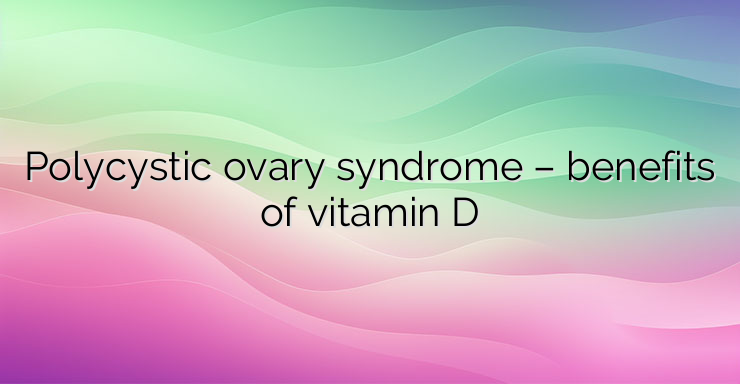In vitamin D-deficient women with polycystic ovary syndrome, vitamin D intake has a beneficial effect on certain liver markers and additionally on insulin sensitivity. Polycystic ovary syndrome – PCOS manifests itself with a variety of symptoms caused by hormonal imbalance. This condition affects 5 to 10% of women. It is characterized by an abnormal increase in the production of androgens – male hormones from the ovaries. The diagnosis is confirmed when some of the following criteria are present: Acne, hirsutism – excessive hair growth; Too high concentration of male sex hormones in the blood, especially testosterone and androstenedione; Dysovulation or anovulation: irregular, rather long menstrual cycles or complete absence of ovulation. On ultrasound, a multifollicular appearance of the ovaries is observed: the ovaries are slightly larger than normal. They contain more than 19 small follicles, whose growth stops when they reach a size of about 8 mm. In most cases, these symptoms appear as early as puberty, but they can also appear later as a result of weight gain. This syndrome is also associated with a number of metabolic disorders. In patients with polycystic ovary syndrome, insulin resistance, high blood insulin concentration, dyslipidemia, and overweight or obesity are often observed. These patients are also at a higher risk of developing non-alcoholic fatty liver disease. A recent meta-analysis has shown that vitamin D deficiency is common in women with polycystic ovary syndrome. Low vitamin D levels are also associated with obesity as well as increased insulin resistance. One study analyzed the effects of vitamin D supplementation on cardiovascular risk factors, hormones, and markers of liver injury and fibrosis in obese or overweight women with vitamin D deficiency and polycystic ovary syndrome. Forty women participated in this randomized, double-blind, placebo-controlled trial. They took 3,200 IU of vitamin D or a placebo daily for three months. The results showed that compared to a placebo, vitamin D intake had a beneficial effect on markers of liver health. Vitamin D moderately lowers levels of ALT – alanine aminotransferase – a liver enzyme that is also an indicator of liver fibrosis. It also moderately reduces insulin resistance. These results need to be confirmed by studies on a larger sample of participants with polycystic ovary syndrome and alcoholic fatty liver at different stages and with a longer duration of supplementation. References: https://nature-sciences-sante.eu/vitamine-d-et-syndrome-des-ovaires-polykystiques/ https://pubmed.ncbi.nlm.nih.gov/30658483/


Leave a Reply